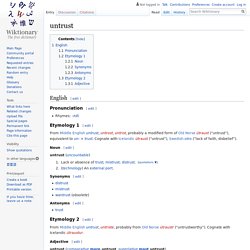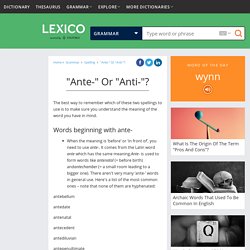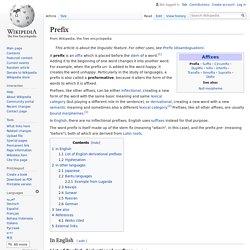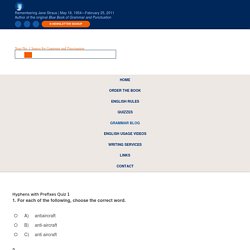

The prefixes 'out-' and 'over-' - Learners' Questions. Untrust. English[edit] Pronunciation[edit] Rhymes: -ʌst Etymology 1[edit] From Middle English untrust, untrost, untrist, probably a modified form of Old Norse útraust (“untrust”), equivalent to un- + trust.

Cognate with Icelandic útraust (“untrust”), Swedish otro (“lack of faith, disbelief”). Noun[edit] untrust (uncountable) Lack or absence of trust; mistrust; distrust. quotations ▼2006, Matthias Klusch, Michael Rovatsos, Terry R. Synonyms[edit] Antonyms[edit] trust Etymology 2[edit] From Middle English untrust, untriste, probably from Old Norse útraustr (“untrustworthy”). Adjective[edit] untrust (comparative more untrust, superlative most untrust) (archaic) Faithless; distrustful. Part or all of this entry has been imported from the 1913 edition of Webster’s Dictionary, which is now free of copyright and hence in the public domain. How to Use Distrust vs. mistrust Correctly – Grammarist. Lexico Dictionaries. The best way to remember which of these two spellings to use is to make sure you understand the meaning of the word you have in mind.

Words beginning with ante- When the meaning is ‘before’ or ‘in front of’, you need to use ante-. It comes from the Latin word ante which has the same meaning.Ante- is used to form words like antenatal (= before birth) andantechamber (= a small room leading to a bigger one). There aren't very many ‘ante-’ words in general use. Here's a list of the most common ones – note that none of them are hyphenated: antebellum antedate. Prefixes de-, dis- and dys- - 6 Minute Vocabulary. Prefixes. BBC Learning English - Course: lower intermediate / Unit 24 / Session 1 / Activity 3. BBC Learning English - Course: lower intermediate / Unit 24 / Session 1 / Activity 3. Adjectives - Why do we say INcomplete but UNcompleted?
A List of 35 Common Prefixes in English. 20 Most Common Prefixes Flashcards. Prefix. A prefix is an affix which is placed before the stem of a word.

Adding it to the beginning of one word changes it into another word. For example, when the prefix un- is added to the word happy, it creates the word unhappy. Particularly in the study of languages, a prefix is also called a preformative, because it alters the form of the words to which it is affixed. Prefixes, like other affixes, can be either inflectional, creating a new form of the word with the same basic meaning and same lexical category (but playing a different role in the sentence), or derivational, creating a new word with a new semantic meaning and sometimes also a different lexical category.[2] Prefixes, like all other affixes, are usually bound morphemes.
In English, there are no inflectional prefixes; English uses suffixes instead for that purpose. In English[edit] List of English derivational prefixes[edit] In English, a fairly comprehensive list, although not exhaustive, is the following. Don't Dis Disinterested - Grammar and Punctuation. We recently heard from a reader who defended using disinterested to mean “uninterested.”

To most language mavens, this amounts to high treason. The sticklers insist that disinterested can only mean “impartial, unbiased”: you’d want a disinterested judge at your trial—an uninterested judge would just want to go home. Our correspondent made two compelling arguments. His first was pragmatic: countless people nowadays use uninterested and disinterested interchangeably. (True, but countless people also use infer and imply interchangeably, and no one is suggesting they are synonyms.) The writer Ben Yagoda conducted a survey in his advanced writing seminar and found that ninety-four percent of his students believed that uninterested and disinterested both mean “not interested.”
Largely absent from this discussion is the difference between the prefixes un and dis. . • If you are unaffected, you are unchanged (or unpretentious) . • If you feel unease, you are restless or uncomfortable. Pop Quiz 1. Hyphens with the Prefix re - Grammar and Punctuation. Many of us find hyphens confusing.

The prefix re can make hyphenating even more of a head-scratching experience. However, there is really only one rule that you need to learn to determine when to hyphenate with re. Rule: Use the hyphen with the prefix re only when re means again AND omitting the hyphen would cause confusion with another word. Example: Will she recover from her illness? Re does not mean again so no hyphen.
Example: I have re-covered the sofa twice. Example: The stamps have been reissued. Hyphens with Common Prefixes, Part 2 - Grammar and Punctuation. Hyphens with Common Prefixes - Grammar and Punctuation. The Blue Book of Grammar and Punctuation. <div class="banner-container -notice" data-banner="noscript" hidden><div class="banner-block"><h6 class="banner-title title"><i class="fa fa-info-circle"></i> Enable<br>JavaScript</h6><p class="banner-text text">Uh oh!

It looks like you have JavaScript turned off. While most of our site should function with out, we recommend turning it back on for a better experience. The Flatmates - Language Point 170. The Flatmates - Language Point 105. BBC Learning English, 6 Minute Vocabulary: Prefixes. BBC Learning English - Course: intermediate / Unit 6 / Session 1 / Activity 2. BBC Learning English - Course: intermediate / Unit 6 / Session 1 / Activity 3. BBC Learning English - Course: intermediate / Unit 6 / Session 1 / Activity 1.
BBC Bitesize - What are prefixes? Fm quiz 090113. UNIT 05 P53 Vocabulary. Learning English. UNIT 05 P53 Vocabulary.
The Flatmates - Language Point 179.